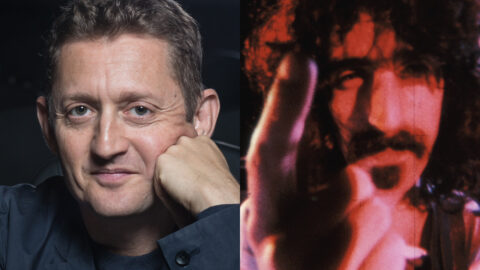NME Music News, Reviews, Videos, Galleries, Tickets and Blogs | NME.COM

Surprising fans by announcing his retirement at just 30 years old, Logic says he’s bidding farewell to the rap game in order to focus on being “a great father” to his newborn son. But instead of just walking off into the sunset that lights his path to parenthood, the self-proclaimed Frank Sinatra of rap has gifted fans with one final album.
Offering a retrospective look back at his life and decade-long career, which started with the release of his 2010 mixtape ‘Young, Broke & Infamous’, ‘No Pressure’ represents a more laid-back and reinvigorated Logic – aka Sir Robert Bryson Hall II – unafraid to question societal norms as well as his own self-worth. From addressing his critics (‘Dark Place’) to deliberating over the important things in life (‘Open Mic – Aquarius III’), the Maryland rapper bows out with an emphatic thank you note beautifully scored with the help of acclaimed producer No I.D.
More than just a platform for him to offload the weight that has been bearing down on his shoulders for so long, his sixth studio album is also a full-circle moment that ties up a few loose ends. Acting as a sequel to his 2014 debut album ‘Under Pressure’, Logic, accompanied by his android narrator Thalia – who was inspired by A Tribe Called Quest’s ‘Midnight Marauders’ – revisits the boom-bap sound fans fell in love with early on in his career.
Even the album’s artwork, designed by Brooklyn illustrator Sam Spratt, is a continuation of that of Logic’s Def Jam-released debut. He no longer frantically types raps in his phone hoping to write a hit, and the cover of ‘No Pressure’ depicts Logic’s home studio obliterated, our protagonist suspended in a weightless state free from the burdens of fame and expectation.
That weightless state is converted into song at various points throughout ‘No Pressure’, but nowhere better than on the tranquil ‘man i is’. Logic salutes his heroes (“Look at my idols, I’m feelin’ adjacent”) and waxes lyrical about where he comes from (“West Deer Park, that’s my location”), highlighting his transformation from underground rapper to global phenomenon. Meanwhile No I.D. ties it all together with a sea of animated horns, sweeping strings and a twisting DJ Screw sample.
All too often Logic is unfairly criticised for paying homage to the artists whose music has influenced his own. His tendency to borrow melodies, repurpose lyrics and chop up samples – something he alludes to at the end of ‘DadBod’ – has been known to rub a few people up the wrong way (we’re looking at you, Joe Budden). But this isn’t new. Hip-hop was built on samples and celebrating the works of others. In fact, Drake, the biggest rapper on the planet, is the ultimate rap nomad, adopting a new sound and style as each year passes and facing no real consequence.
At least Logic owns he’s doing. Take ‘GP4’, the fourth instalment of his ‘Growing Pains’ song series, where he relays the many hurdles in his own life, soundtracked by the iconic snare and woodblock taps of OutKast’s ‘Elevators’. He even remixes the classic song’s hook: “You and me, gon’ live together in this perfect harmony / I can hear ‘em calling me, we’ve come a long way since H.O.C.”
But his influences run deeper than rap. On ‘Obediently Yours’, the album’s final cut, Logic signs off with a powerful speech from cinematic legend Orson Welles, first delivered on the Lear Radio Show in 1945 to highlight the injustices still faced by the black community. “Race hate isn’t human nature; race hate is the abandonment of human nature,” Welles says, his words unfortunately still as relevant 75 years later.
As well as weighty statements, there is a sense of closure here. Fans are still asking questions about ‘Ultra 85’, the album Logic teased in the linear notes of 2017’s ‘Everybody’ (“My next album will be called Ultra 85,” he wrote, “and it will be the conclusion to this saga”). It seems they’ve finally got an answer – sort of. As the piano on the Kanye West-inspired ‘Heard Em Say’ fades out, Thalia announces the end of ‘No Pressure’. “Welcome to the Ultra 85 program,” she says, before Logic launches into a hearty sermon, thanking his friends, fans and supporters on the triumphant ‘Amen’.
It remains to be seen if ‘No Pressure’ is Logic’s final album. What we do know, though, is that he’ll be missed. Perhaps not by the rap purists bearing a grudge, or the critics who can’t quite fathom the concept of his positive brand of rap, but by those who found purpose through his music. Those who decided not to take their life because of something he said, and the fans who struggled with their identity but discovered it was OK to be themselves.
Logic’s contribution to hip-hop is deep-rooted in inclusivity and compassion, and ‘No Pressure’ continues the trend even as he bids farewell to the art form that raised him and gave him a platform to speak his truth.
The post Logic – ‘No Pressure’ review: positive rapper bids farewell with an elegiac swan song appeared first on NME Music News, Reviews, Videos, Galleries, Tickets and Blogs | NME.COM.






